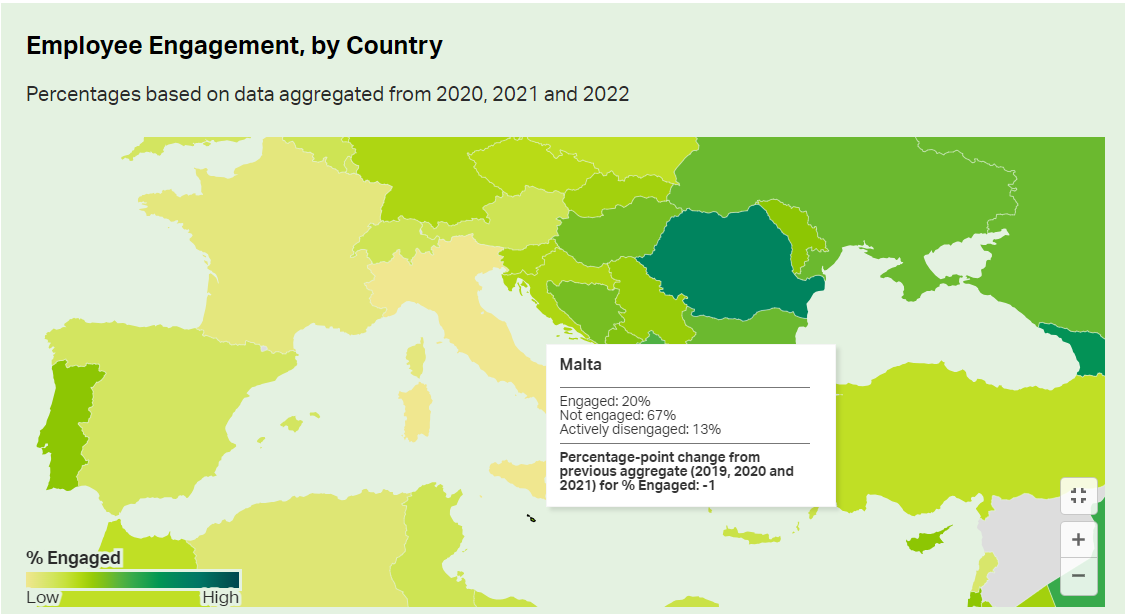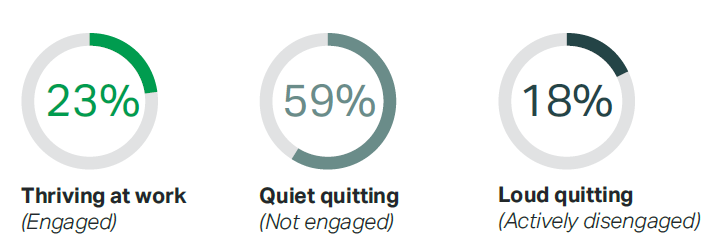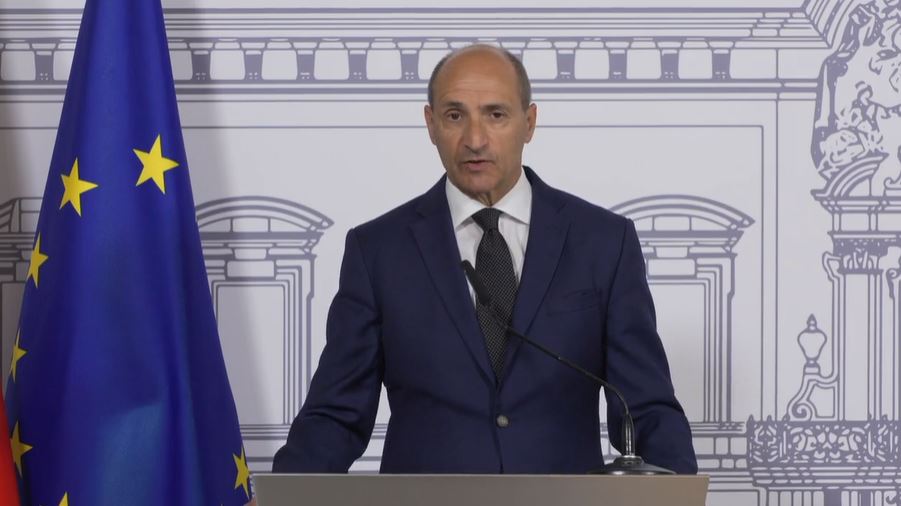Workers in Malta are increasingly stressed, angry, disengaged from the workplace and pessimistic about the job market, according to a new study published by Gallup.
The global analytics and advisory firm’s report titled State of the Global Workforce 2023, revealed that low workplace engagement costs the global economy $8.8 trillion (€8.05 trillion), equal to nine per cent of the global GDP.
In Malta, only one in five workers were actively engaged in the workplace in 2022, while the majority were either disengaged, i.e., quiet-quitting (67 per cent), or actively disengaged, i.e., loud-quitting (13 per cent). This marked a one percentage point decline compared to aggregate data of the previous three years, signalling a decline in workplace satisfaction.

Compared to the global average, Malta had a higher share of quiet quitters and maintained a lower share of engaged workers and actively disengaged workers.
The report explained that quiet-quitters were psychologically unattached to their work and company. They contributed their time, but not their energy or passion into their work. They were also more likely to be stressed and burnt-out from work.

Meanwhile, loud-quitters were not just unhappy, but were resentful that their needs were not being met and were acting out of unhappiness, and potentially undermined what engaged workers accomplish.
The report also noted that there may have been a breach in trust between employers and loud-quitters. Alternatively there may have been a woeful mismatch of the employee’s role and their skills, which caused constant crises.
In contrast, engaged workers thrived at work, they drove performance and innovation, and moved the organisation forward. They were considered to be more involved and enthusiastic about their work and their workplace.
Workers in Malta also recorded a high degree of stress. When survey respondents were asked whether they felt stressed for a lot of the previous day, 56 per cent responded in the affirmative, an increase of three percentage points in 2022.
This made Malta second only to Greece among European countries experiencing high levels of stress.
In addition to stress, 24 per cent of respondents from Malta reported feeling angry for a lot of the previous day, the fourth highest rate in Europe, and second in the EU.
Lastly, when asked whether workers in Malta thought it was a good time to find a job, less than half responded yes (45 per cent), a drop of three percentage points in 2022.
“Poor management leads to lost customers and lost profits, but it also leads to miserable lives. Gallup’s research into well-being at work finds that having a job you hate is worse than being unemployed — and those negative emotions end up at home, impacting relationships with family. If you’re not thriving at work, you’re unlikely to be thriving at life,” stated the company’s CEO, Jon Clifton.
Financial services associations express ‘deep concern’ on situation, condemn attacks on judiciary
The financial services bodies deem attacks on members of the judiciary as ‘unacceptable’
Chris Fearne resigns, requests removal of nomination for EU Commission amid Vitals fraud charges
Prime Minister Robert Abela has requested him to reconsider his decision
Malta Development Association Estate Agents Section elects new council
Alliance CEO Michael Bonello will continue to lead the section






